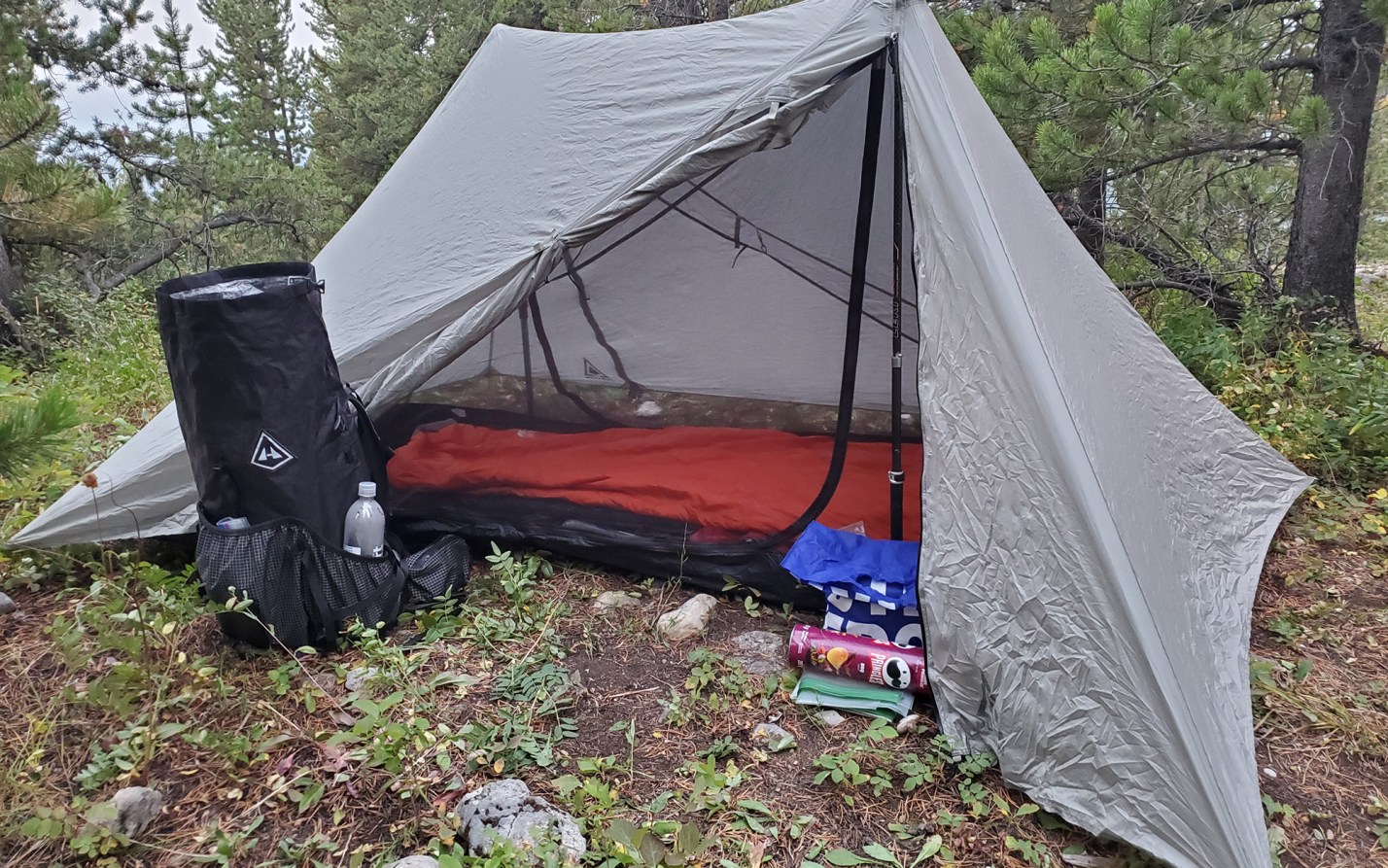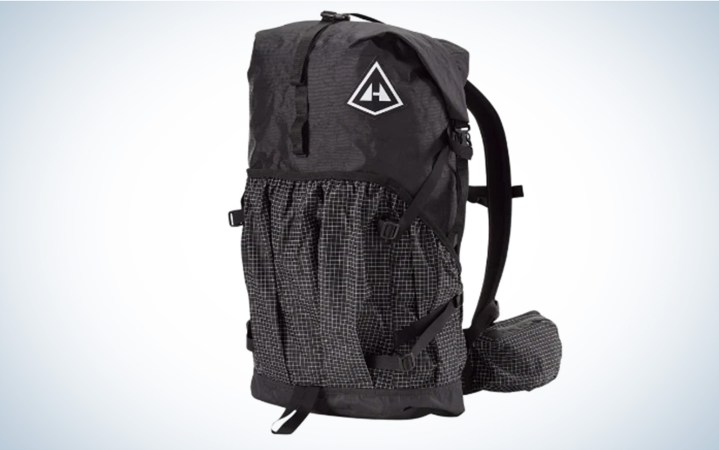We may earn revenue from the products available on this page and participate in affiliate programs. Learn More ›
You can recognize Hyperlite Mountain Gear’s quiver of ultralight backpacks on America’s long trails. Beloved by a loyal group of long distance hikers, the Hyperlite Southwest 40 is known for its water-resistant finish, aesthetic looks, and hefty price tag. After I noticed an uptick in Hyperlite packs on trail, I decided to form my own opinion on whether the Southwest 40 ultralight backpack lives up to the hype.
I originally took this pack for a spin during Outdoor Life’s inaugural backpacking gear test on the Oregon Coast Trail back in April. To really put the Hyperlite Southwest to the test, I packed it for a section hike on a portion of the Great Divide Trail, which straddles the British Columbia-Alberta border in the Canadian Rockies.
I took it on section B of the GDT, which sits between Crowsnest Pass and Kananaskis Lakes. This section includes 67 miles of steep, brushy terrain, and scree scrambling. I even took a couple (accidental) tumbles. My goal was to treat the pack as I would one of my own: with respect, but also the expectation that this gear should live up to the rigors of heavy day in, day out use, including exposure to high UV, rain, and any other elements the Canadian Rockies dared to throw at me.
Hyperlite Southwest 40 Specs and Key Features
- Weight: 2 pounds (size medium)
- Material: DCH150 main body and bottom
- Internal Volume: 40 liters (2400 cubic inches)
- External Volume: 9.8 liters (600 cubic inches)
- Load Capacity: 40 pounds
- Pockets: Three external, including a large front stuff pocket and two side pockets.
Load Bearing
The Hyperlite Southwest stood out among ultralight packs I’ve utilized in the past as having superior load bearing abilities. Although categorized as an ultralight pack, the Southwest is not a frameless pack, and comes with two removable, contoured aluminum stays.
Abrasion Resistance
It was immediately apparent even during my initial packing that this backpack stands out in terms of abrasion resistance and durability. The materials look and feel high quality. Hyperlite distinguishes between DCF (Dyneema Composite Fabric) and DCH (Dyneema Composite Hybrids) fabrics in the construction of their packs. The DCH fabric Hyperlite uses on their Southwest pack purportedly offers less stretch/warp than other fabrics, the water resistance of DCF, with the addition of the superior abrasion resistance I experienced. The black version of the Southwest’s DCH is DCF laminated with 150 denier. The white is laminated with 50 denier nylon fabric.
Packability
At 40 liters, there’s no question that this Southwest pack fits squarely into the ultralight-kit-required category of packs. There’s just no room for anything frivolous, except maybe that bag of chips strapped to the outside. The Hyperlite Southwest comes in several sizes. If a full ultralight kit isn’t your style, or you’re in the process of working ultralight equipment into your gear list but are more comfortable with a roomier set up, it also comes in 55 and 70 liter sizes.
Testing the Hyperlite Southwest 40 in the Field
Though my testing trip for the Southwest wasn’t a thru hike, I have the experience to know how to challenge an ultralight pack. This chunk of the GDT offered the intensity and variability necessary to test the Hyperlite Southwest 40. I hit the Canadian Rockies in the 95 degree heat and ended with nighttime lows at freezing. It was subjected to rain, wind, sun, and wildfire smoke. And while wearing the Southwest, I hiked on trail, bushwacked, scrambled, and fell twice (not intentionally). I also had a heavier kit than usual, helpful in testing the Hyperlite’s load bearing claims.
Load Bearing
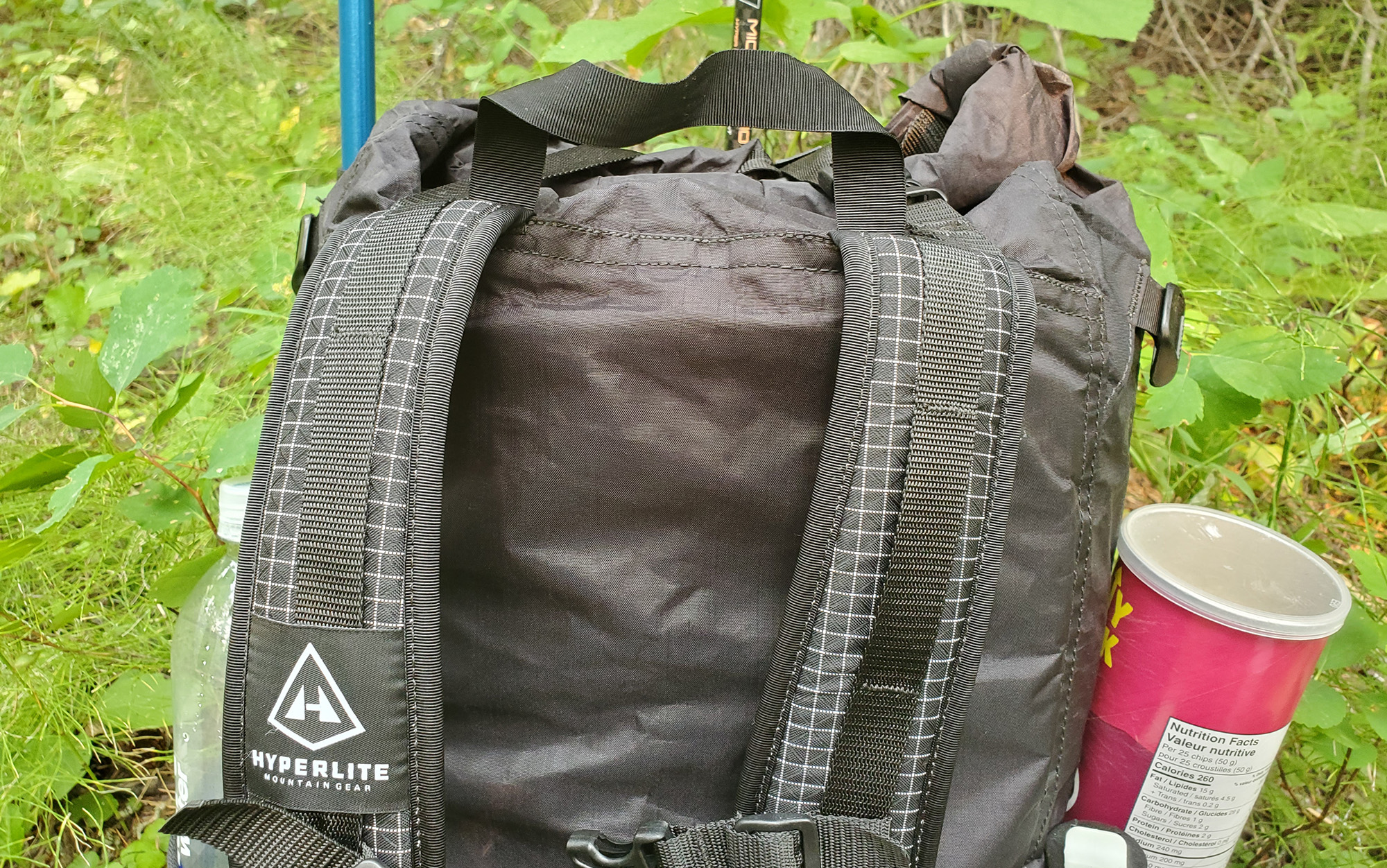
My kit, including four days of food and 2 liters of water weighed around 25 pounds, which is well inside the 40 pound weight limit that Hyperlite advertises. The lightweight frame combined with the dual-density hip belt consisting of both closed cell rigid foam and closed cell foam with spacer mesh made all the difference. I could easily adjust the wide hip belt on the move. The closed cell foam shoulder straps were amply sized to not dig into my shoulders (an issue I have had in the past with narrower straps combined with heavier loads.)
Even with the additional weight of things like a synthetic mummy bag and liner (as opposed to my ultralight quilt), the Hyperlite Southwest stood out head and shoulders above the plethora of other ultralight packs I have hiked with in its load bearing ability.
I didn’t find the Southwest to have as many adjustment points as some of the backpacks I’ve hiked with, which is helpful to shorten the learning curve of finding the right fit for your body in a new pack. On the other hand, options can be helpful as the weight or bulk of your pack’s contents, or physical needs evolve over the duration of a trip.
The Southwest has an adjustable hip belt, sternum strap, and shoulder straps, but notably no load lifters—a deal breaker for some. I didn’t find the lack of this common feature to be too noticeable or uncomfortable for me personally. The fit of a pack is so specific to the individual’s needs, body, and the weight and weight distribution of their hiking kit.
I was able to utilize those three adjustment points as my physical comfort and needs changed throughout my section hike. However, I can see it being uncomfortable for some to not have the option of making micro-adjustments as their needs change throughout their journey.
Durability
The Great Divide Trail is known to be a work-in-progress hybrid route and trail. It proved to be an advantageous testing ground because I had plenty of opportunity to get the pack properly scratched up in extremely brushy conditions.
The route section I hiked also included a scramble over Tornado Saddle, the ultimate abrasion test. Tornado Saddle offers no room for error being rife with “no fall” zones. However, the Southwest took on the butt sliding, squeezing between rocks, and scrambling perfectly. As its namesake infers, I can see this pack performing while canyoneering or in the tight, rocky terrain of the Southwest.
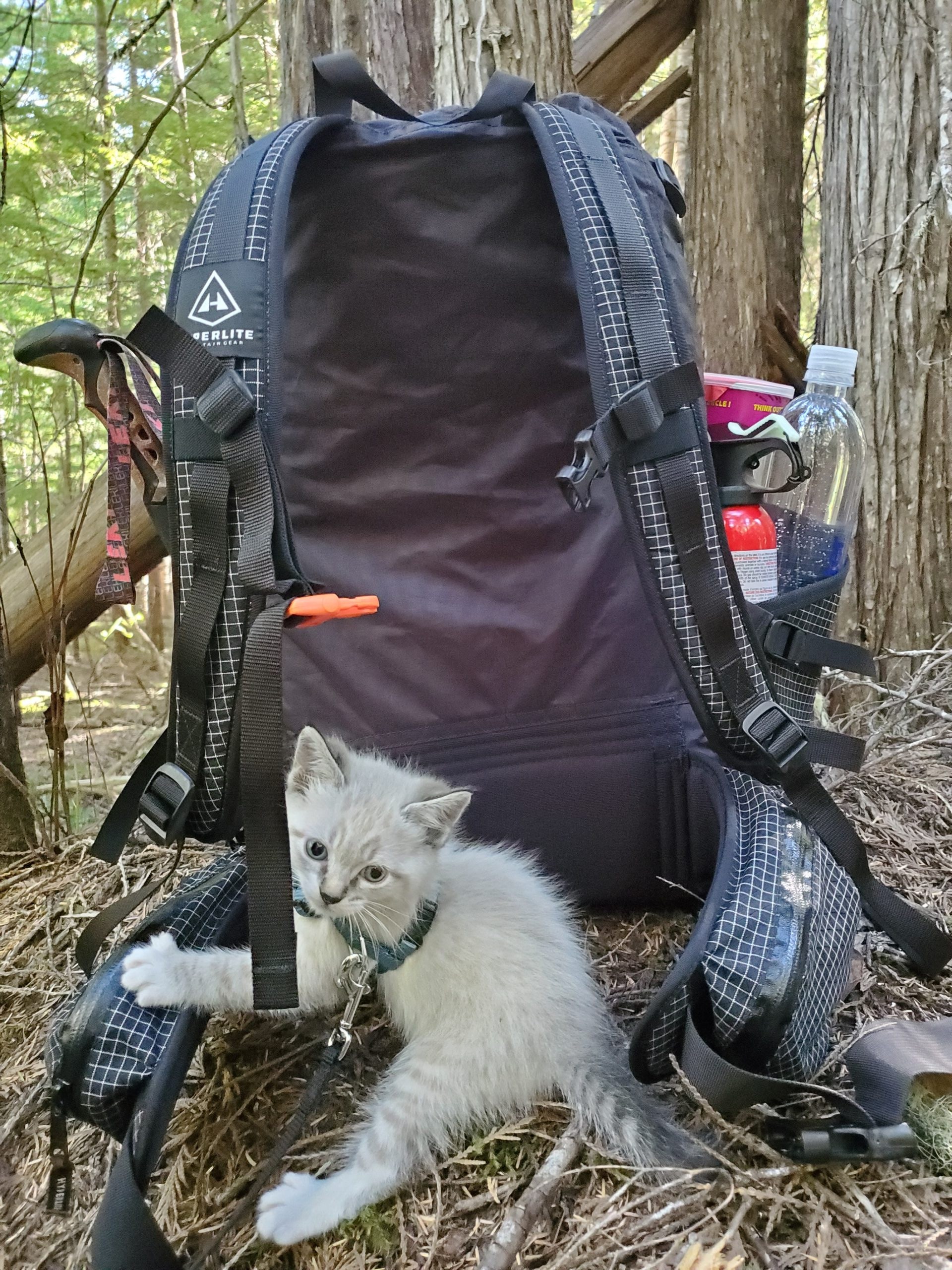
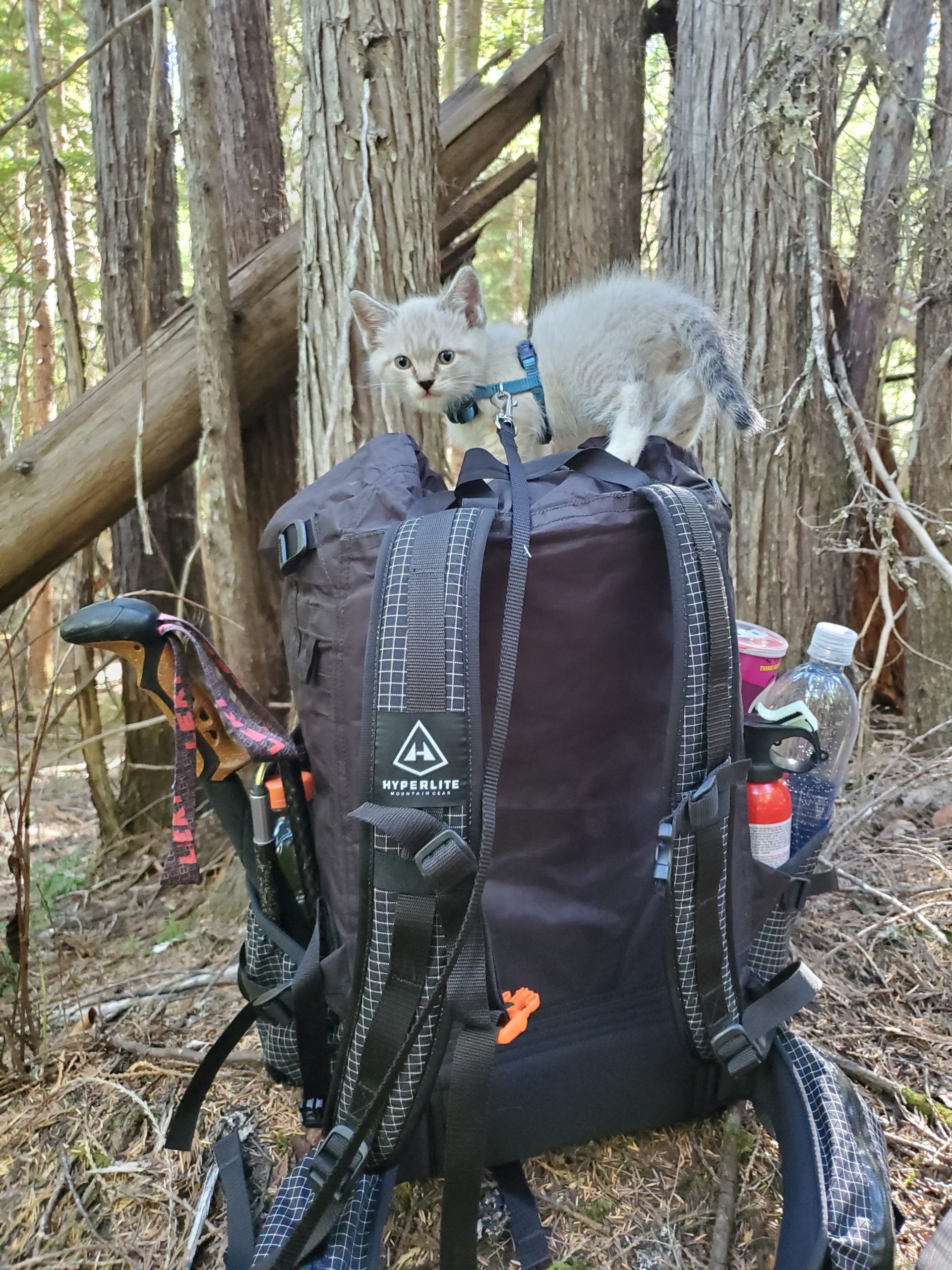
I also went backpacking with a pet cat. I let the kitten ride on the top of the pack and climb her way up and down it during breaks. The Hyperlite Southwest showed absolutely zero wear, abrasion, or claw marks after all this. I also didn’t regret my decision to opt out of bringing a pack liner or cover, instead trusting Hyperlite’s claimed water resistance. None of my gear (including my sleep system) was damp or compromised in any way after hiking through an afternoon thunderstorm.
After a subsequent damp, chilly night, with the pack sitting outside, none of the gear I left inside to maximize space in my one-person ultralight tent was wet. It retained its shape and packability through all conditions, looking crisp and no worse for the wear in spite of my best efforts to abuse it.
Packability
The structure of the thicker DCH material offered a noticeable level up in packability. The fabric didn’t stretch or bulge. It retained its structural integrity and shape, which allowed me to pack my kit in a way that was comfortable and familiar to me. After a damp night in the woods, it’s disheartening to have to rethink how I pack my entire camp set up because of a pack that is warped by precipitation or humidity (pre-coffee!).
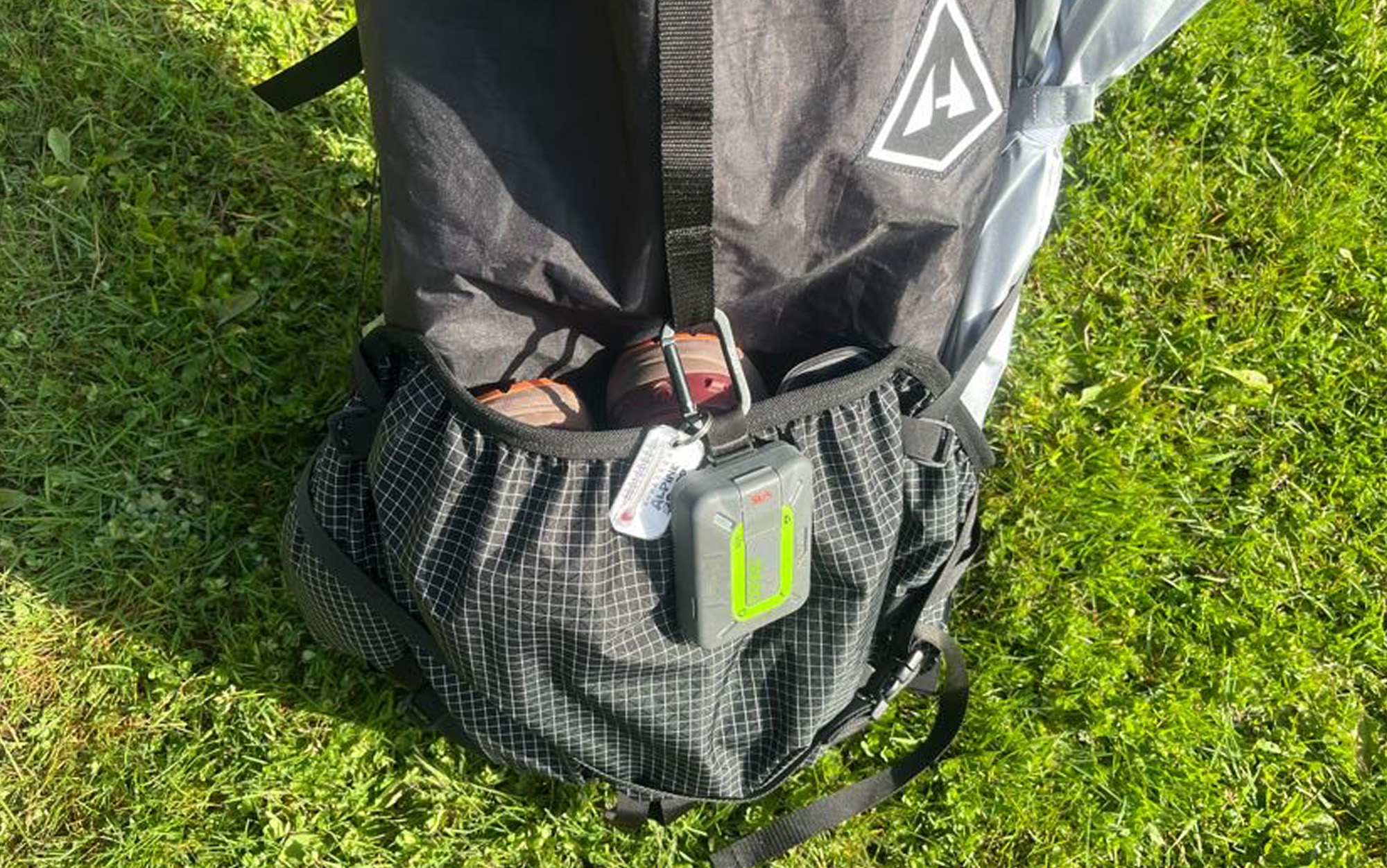
The hipbelt comes standard with two pockets, and shoulder strap pockets are optional add-ons. Or you can add Hyperlite’s best hiking fanny pack, the Versa. I stuffed my side pocket with a 1 liter water bottle, bear spray, and a can of Pringles. When you unfurl its roll-top to begin the packing process, it stands on its own and offers a clear view of everything you’ve packed and the remaining space you have.
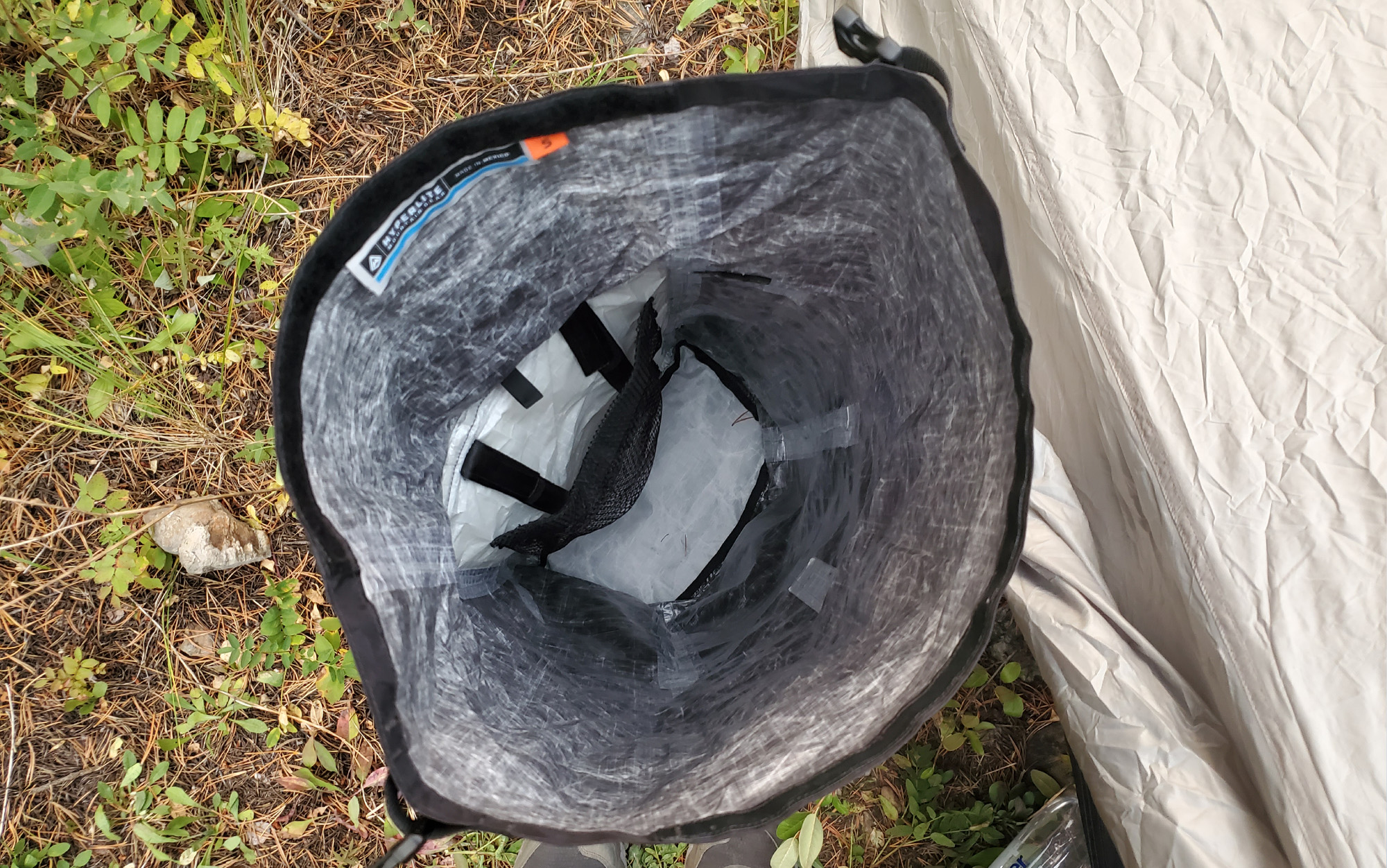
The sleek, water resistant DCH allows gear and stuff sacks to pack in smoothly and efficiently. The process felt seamless and stress free. It was refreshing to be able to use my tried and true packing routine with a new pack, thanks to materials that stands up to the elements.
What the Hyperlite Southwest 40 Does Best
During my Hyperlite Southwest 40 review, I found that all the qualities sold by its DCH fabric lived up to its claims. The pack resists abrasion, retains its shape and structure, and resists moisture. This pack exceeded my expectations in all these categories and provided a new perspective on what’s possible with ultralight backpack engineering.
If you’re typically bushwacking, scrambling, canyoneering, or desert hiking, this pack will excel in these conditions. The strength, structural integrity, water resistance, and general mettle of the DCH fabric will be highly advantageous. However, anyone can find this ultralight and ultra-durable pack in a brick and mortar store at REI, making it great for those looking to try it on before buying or grab-and-go on your next trip.
Where the Hyperlite Southwest 40 Can Improve
The Southwest is more (and in some cases, less) backpack than your average ultralight user is looking for. At a starting cost of $369 for the black, 150 denier nylon bonded model tested, it’s not priced for the entry level or ultralight curious backpacker. The tight 40 liters and lack of load lifters may also cause issue for beginners. The Hyperlite Southwest is instead designed for prolonged backcountry use. It has a great balance of light yet burly for the avid route finder, scrambler, canyoneer, or long distance backpacker.
Final Thoughts
The Hyperlite Southwest 40 pack exceeded my expectations as a light yet sturdy backpack with superior abrasion and water resistance compared to other ultralight packs. Its packability and load bearing abilities only sweetened the experience of hiking through the unpredictable terrain and weather of the Canadian Rockies. The Sothwest 40 can be easily obtained at your local REI. This ease of access may really sweeten the deal for those without the time or patience to wait out longer lead times.
